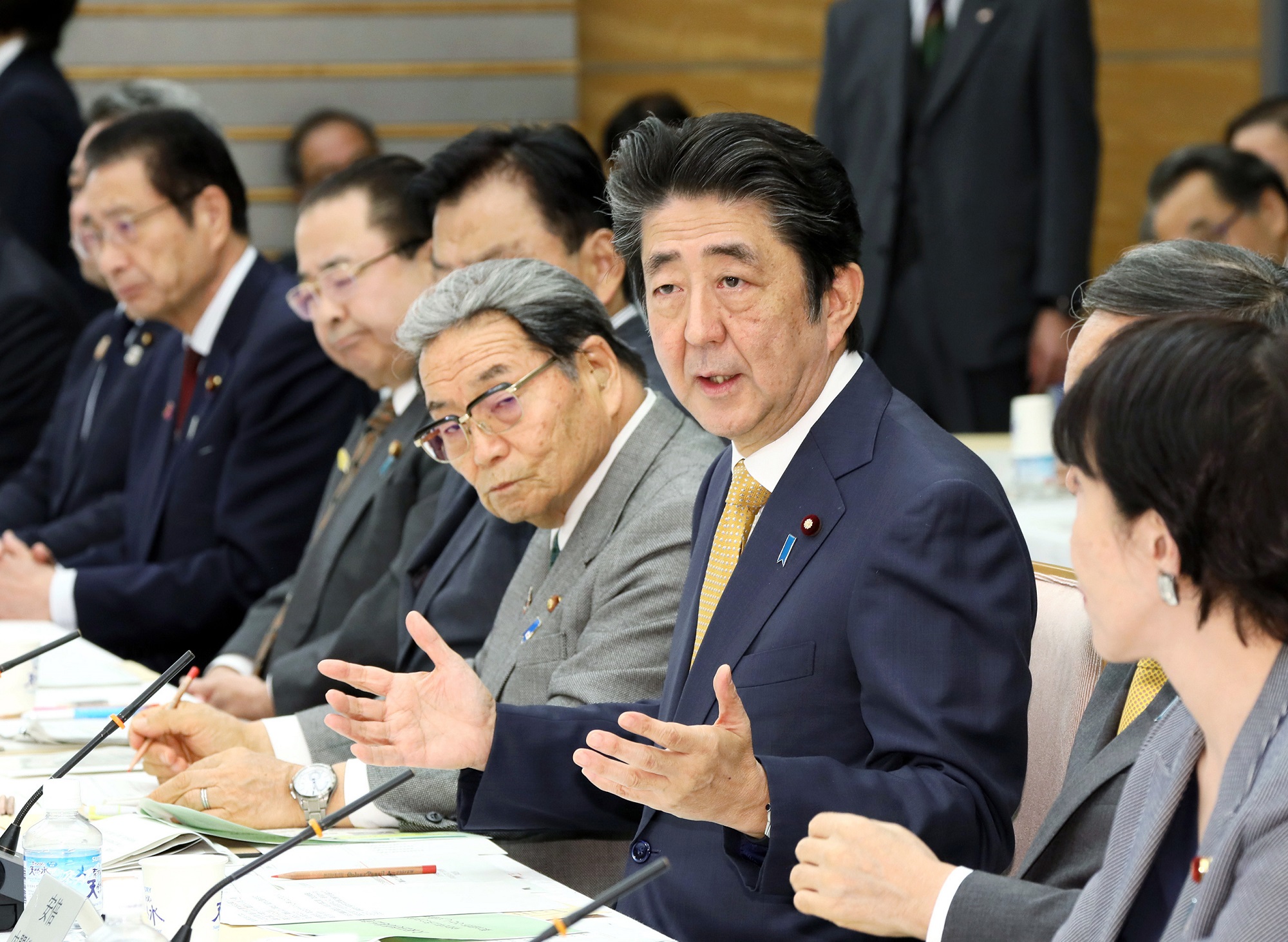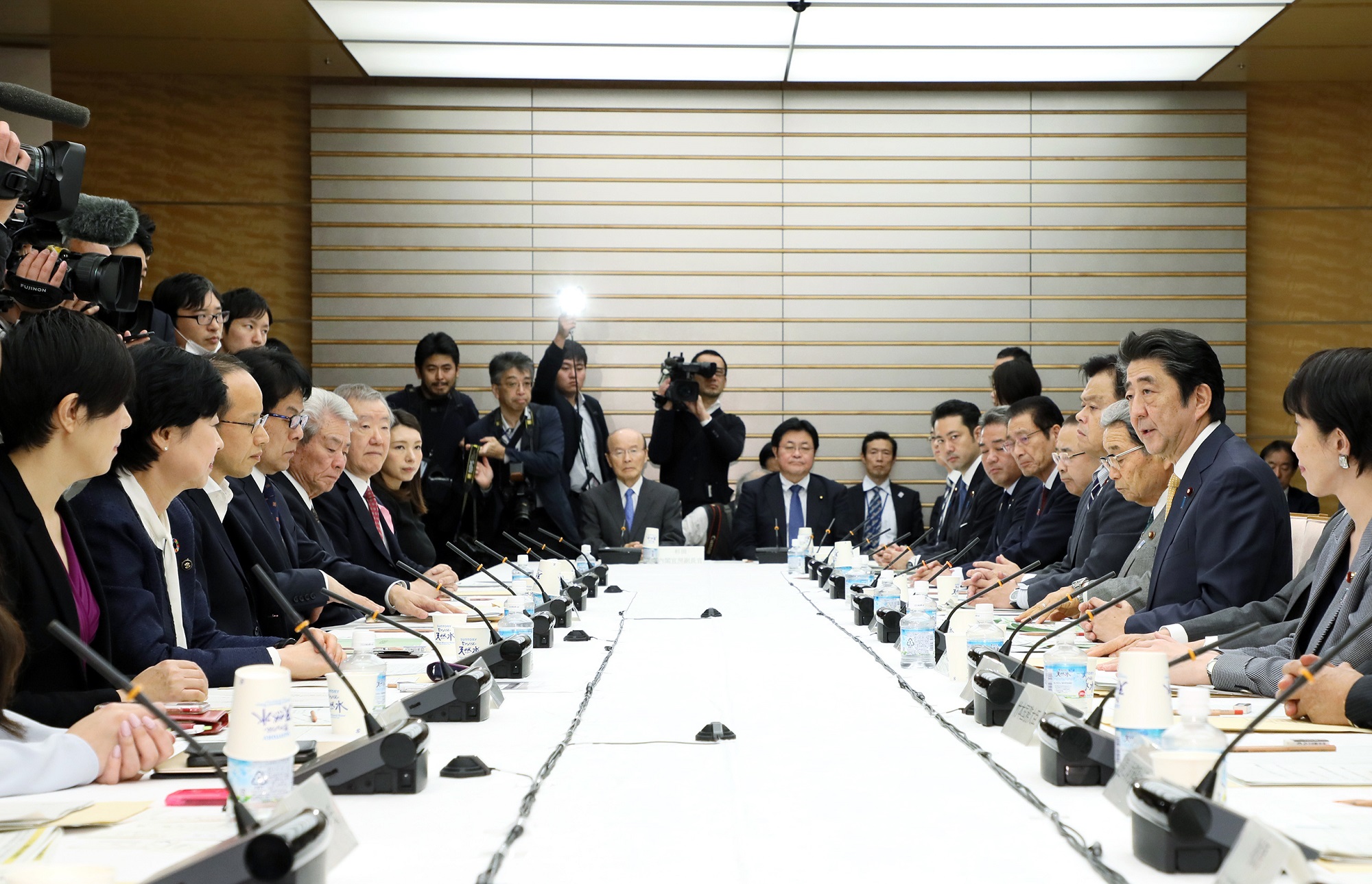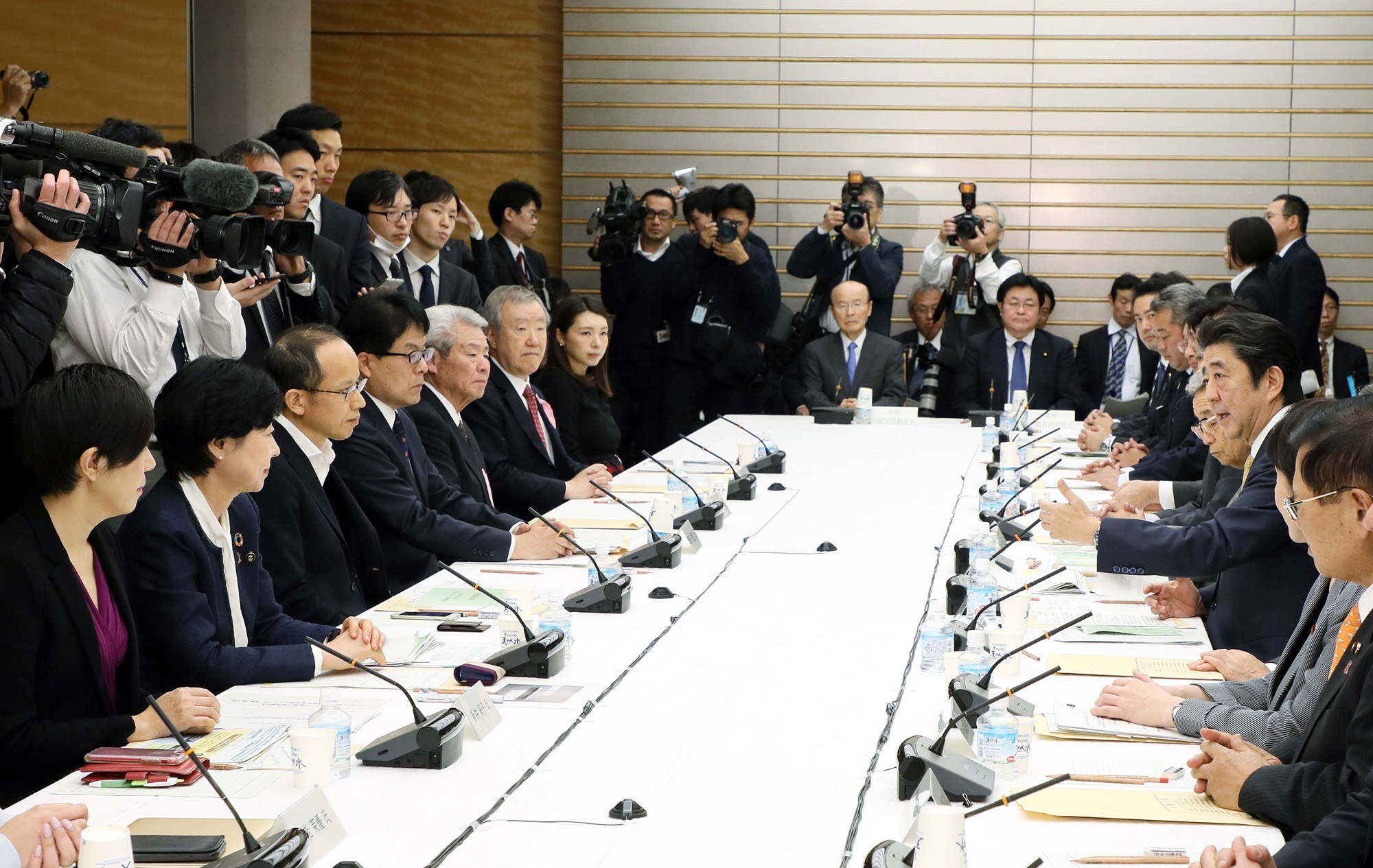Home > News > The Prime Minister in Action > November 2019 > Council on Overcoming Population Decline and Vitalizing Local Economy
The Prime Minister in Action
Council on Overcoming Population Decline and Vitalizing Local Economy
November 22, 2019
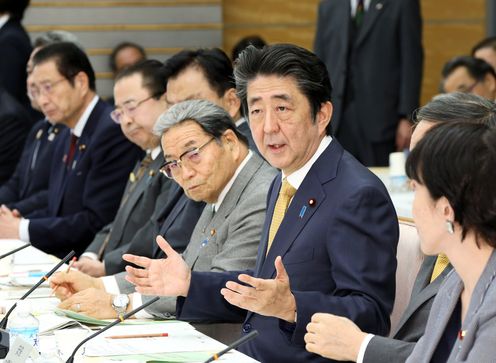
Photograph of the Prime Minister making a statement (1)
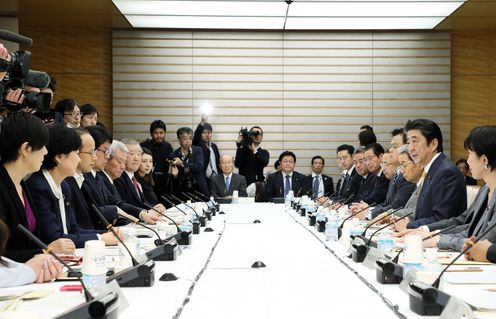
Photograph of the Prime Minister making a statement (2)
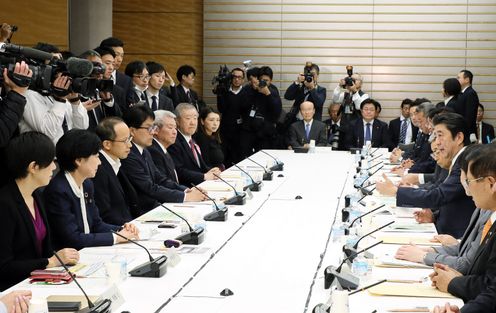
Photograph of the Prime Minister making a statement (3)
[Provisional Translation]
On November 22, 2019, Prime Minister Shinzo Abe held the 20th meeting of the Council on Overcoming Population Decline and Vitalizing Local Economy at the Prime Minister’s Office.
At the meeting, a discussion was held on the basic direction of the second phase of the Comprehensive Strategy for Overcoming Population Decline and Vitalizing Local Economy.
Based on the discussion, the Prime Minister said,
“Today, we held a discussion towards the formulation of the second phase of the Comprehensive Strategy for Overcoming Population Decline and Vitalizing Local Economy.
Towards further expansion of regional revitalization, we must undertake an even stronger and more tailored approach to issues such as the excessive concentration of the population in Tokyo, thoroughly based on the outcomes of the first phase. To that end, as I stated a moment ago, we must give a closer look on the outcomes of the first phase, including the reasons why there has been no sufficient progress, if there is none.
From this fiscal year, we started a scheme that offers up to 3 million yen to those who migrate from Tokyo to the regions and take a job or start a business. When we launch this kind of scheme, the Diet questions to what extent they are used and, if not, accuse us. Even though it has just started, we have already seen cases of people moving to Tohoku or Kyushu. We will strongly support those who seek out opportunities in areas outside the major cities, including young people.
At the same time, some have pointed out that it is quite difficult to make the decision to move to those areas at once. I agree with that.
The Abe Cabinet has expanded the Regional Vitalization Cooperation Volunteers initiative to 5,000 people, more than five times. It has been reported that approximately 60% of the volunteers have chosen to settle down in the communities they were assigned to after the end of their two-year term, during which they nurtured the connection with the region and grew to love it.
There might be an approach such that, starting from the point where people do side jobs or multiple jobs in local communities on the weekend, while residing in cities, and form those small connections, they deepen their affinity to the communities and eventually migrate there. I believe such an idea, to increase the groups of people related to each area and encourage their eventual migration, is also necessary.
In the second phase—with respect to creating attractive jobs, which we have been working on due to the situation where even if people return or migrate to those areas few jobs are available, and which has significantly improved—as it has been also pointed out today, it is extremely important whether we can provide an environment where it is easy to get married, give birth, and raise children, or what kind of environment we can provide when, in particular, families move to those areas, and I intend to work on the creation of such environments. By working on the creation and expansion of the groups related to those areas, I intend to elevate our efforts on regional revitalization to a new stage.
Based on today’s discussion, I ask the relevant ministries to come together under Minister Kitamura and advance reviews on concrete and effective policies, towards the formulation of the second phase of the comprehensive strategy by the end of the year.”

